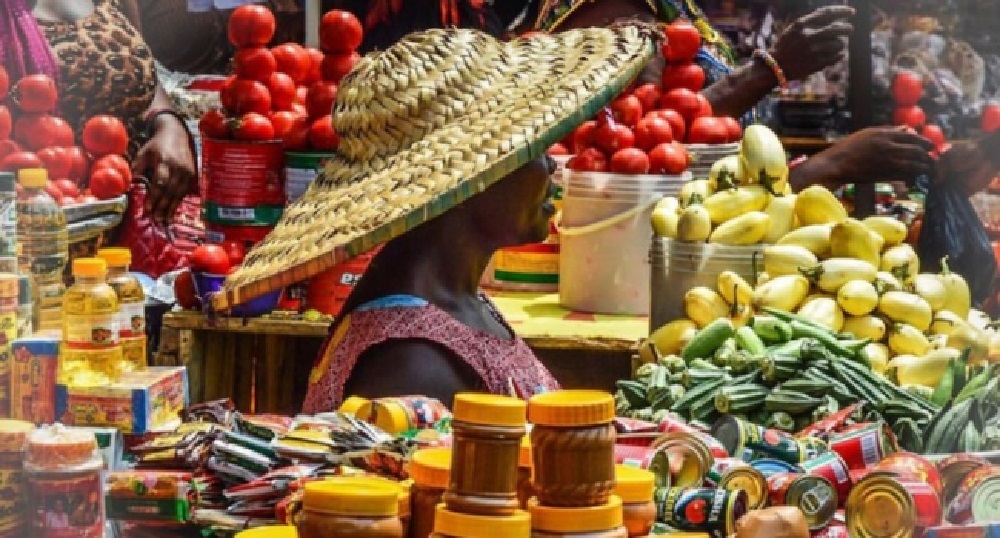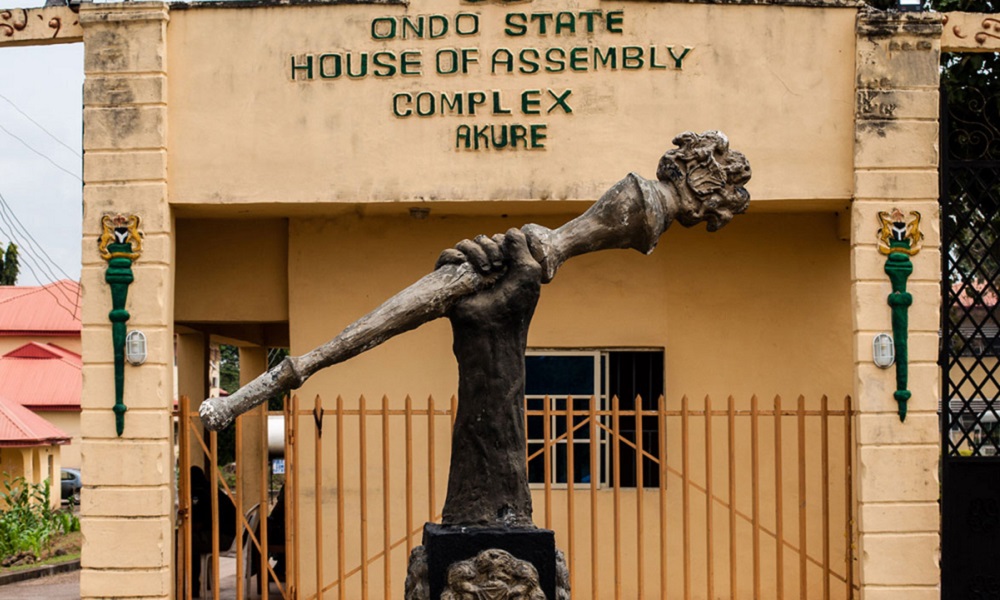News
Food inflation: We weep each time we go to market, housewives lament

Prices of food items have continued to soar in the market causing Nigerian housewives’ serious heartache.
The skyrocketing food prices in Nigeria have made many housewives and mothers ‘mathematicians’ as they constantly struggle to manage the resources available to meet family needs amid increasing prices and declining purchasing power.
“I’m always agitated anytime I remember that I have to go to the market because of the surging food prices. Things are very expensive in the market and the cost of making a pot of soup has more than tripled in the last year,” said Chidinma Kalu, a Lagos-based housewife.
Catherine Ako, a civil servant said that husbands are not passing through half of what their wives are passing through nowadays because men only give their wives money, and the women will go to the market to find out that what they have would be enough only for them to add their money to make up.
“The cost of protein is very high with meat, fish, stock fish, egg, chicken and turkey gradually going out of the reach of the poor. I spend almost 85 percent of the family feeding allowance on buying protein to cook soup, stew and other meals.
“To prepare a pot of soup for my family of eight, I have to buy meat of about N9,000, frozen fish of N10,000 and stock fish of N4,000, totalling N23,000 for protein alone. This is aside from other ingredients that are needed to make soup, which would take nothing less than N7,000. This means that every week that I make soup for my family, I spend nothing less than N30,000 but this time last year, it only cost about N10,000,” said Kalu, the mother of four.
According to her, “I always feel like crying each time am coming back from the market. I feel robbed. With a lot of money, you hardly get something to fill a nylon back. It is crazy right now in Nigeria.”
Comparing how prices have changed in the last year, Funmi Adewunmi, a nurse, said her family’s weekly feeding bill has increased from N30,000 to over N50,000.
According to the mother of two, her family of four manages to make do with N100,000 weekly expenditure on feeding alone at a time salary is not increasing.
“Since Tinubu’s administration, all we do with our salaries is to eat food without being able to do any other thing. It is now difficult for families to feed well and save money to pay other bills. We only eat food and struggle to pay children’s school fees, house rent and meet other needs,” said Adewunmi.
She said that families hardly talk about saving for investment in today’s Nigeria.
“I nearly fainted when a yam seller told me that a tuber of new yam sells for N11,000. Both old and new yam are no longer reachable to the poor. Beans and maize are also expensive, meaning that there is no more ‘poor man food’ in Nigeria because every food item is expensive,” said Efe Esosa, a Benin-based fashion designer.
She said she bought 5kg of Semovita for almost N9,000 last week and that ate into the money that she was supposed to cook soup and stew for the weekend.
The fashion designer said that the only saving grace for her family in recent times is the cooperative society where she belongs where a group of women come together to make weekly contributions.
“I contribute N5,000 every week and when is my turn to take home, I use the bulk money to stock the house. It is a bit cheaper to buy food items and even protein in bulk. This is why the rich are the ones who are buying food cheaper compared to the poor.
“The beauty of bulk buying is that it not only makes it cheaper to buy food but also takes some measure of stress off one’s shoulder. Food is expensive in Nigeria but buying it in a bit even worsens it,” Esosa said.
Franklin Godspower, a transporter told BusinessDay Sunday that he always feels for his wife who complains every time she goes to the market to buy food items for the house.
“I commend my wife because I don’t know how she manages the little money that I give her as a weekly feeding allowance. I didn’t know that things had gone this bad until last week when my wife was not feeling too well and I decided to help her buy ingredients for stew only to realise that N15,000 was not able to buy tomatoes, pepper, rice and chicken for stew. Since then, I gave kudos to Nigerian housewives,” said Godspower.
BusinessDay Sunday discovered that part of the reason why food prices are surging is the fact that middlemen and off-takers buy agricultural produce from farmers and hoard them to sell at expensive prices.
According to a dealer, who does not want his name in the print, off-takers go to farmers and buy agricultural produce in lands, when the farmers have not harvested.
The dealer said that middlemen in the supply chain contribute a great deal to the price surge. He cited an example with a basket of tomatoes that sold for as much as N140,000 in Lagos recently when off-takers were buying for as low as N40,000 or N50,000 in places like Jos, Plateau State.
He also claimed that insecurity in the northern parts of the country is also adding to a high of cost food items in Nigeria.
“Many farmers are no longer going to their farms due to insecurity and few farmers who are still going to the farm are forced to pay tolls to bandits to access their farms without any interference,” the dealer said.
He said that the high cost of logistics also plays a critical role in driving food costs to the extreme, especially with the removal of petroleum and forex subsidies by Tinubu’s administration.
Credit: BusinessDay
News
Army acquires 43 drones, wings 46 Turkey-trained personnel

The Federal Government has bolstered the Nigerian Army’s operational capacity with the acquisition of 43 Bayraktar TB2 drones, primarily for deployment in the North-West theatre of operations.
The Commander of the Nigerian Army Space Command, Brig. Gen. U.G. Ogeleka, disclosed this on Tuesday during the winging ceremony of 46 personnel trained in the operation and maintenance of the drones.
The initiative, codenamed Project Guardian, aims to strengthen military operations against insurgency and other security challenges in the region.
“Between May and September 2022, a team of 35 officers and 11 soldiers from the Nigerian Army’s routinely piloted aircraft system regiments underwent specialised training in Turkey on the operation and maintenance of the Bayraktar TB2 drones,” Ogeleka said. “The training crew included multi-piloted aircraft pilots, mission operators, avionics, and mechanical engineers and technicians.”
Out of the 46 trained personnel, 14 are multi-piloted aircraft pilots, seven are mission operators, and 23 are engineers and technicians.
Ogeleka presented 22 of the trained personnel for the winging ceremony, noting that the others are actively engaged in operational duties.
The Chief of Army Staff, Lt. Gen. Olufemi Oluyede, praised the acquisition of the drones and the training of personnel as significant steps toward enhancing the army’s professionalism and combat readiness.
“The winging of these 22 officers and soldiers as pilots and certified maintenance engineers is a morale booster for others in service,” Oluyede said. “It confirms their readiness to operate and maintain the Turkish Bayraktar TB2 drones in our inventory.”
Oluyede further revealed plans to procure additional unmanned aerial systems in the coming year to strengthen military operations across all theatres in the country.
The drones will play a critical role in addressing security challenges in the North-West, a region plagued by banditry and insurgency.
Their advanced surveillance and strike capabilities are expected to significantly enhance the Nigerian Army’s operational effectiveness.
This development underscores the government’s commitment to leveraging technology to improve national security and highlights the Nigerian Army’s drive to modernize its arsenal and build capacity within its ranks.
With more unmanned aerial systems set for acquisition, the military’s ability to conduct precise, real-time surveillance and combat operations is poised for substantial improvement.
News
Ondo Assembly mulls 10-year jail term for land grabbers

The Ondo State House of Assembly is considering a bill that proposes harsh penalties for land grabbers, including up to 10 years imprisonment for forceful entry or illegal takeover of properties.
Governor Lucky Aiyedatiwa has further reinforced the fight against land grabbing by signing an Executive Order to prohibit such activities.
The order aims to end forceful entry, illegal occupation of landed properties, and fraudulent or violent conduct related to land in the state.
To strengthen enforcement, the governor has established a Task Force to protect property rights, uphold the rule of law, and ensure a secure environment for property owners and residents.
The proposed bill also includes severe penalties of up to 21 years imprisonment for selling family land without the consent of the family head or secretary.
Hon Moyinolorun Ogunwumiju, the lawmaker representing Ondo West Constituency 1, who sponsored the bill, spoke during a public hearing on the bill
Hon Ogunwumiju assured stakeholders that the bill would improve land administration, protect landowners, attract investors, and foster peace and development in the state.
He explained that the bill sought to regulate land dealings, protect landowners and buyers, penalise encroachers, and criminalise unregistered agents.
Ogunwumiju said the bill proposed penalties of up to 10 years’ imprisonment for forceful entry or takeover of properties and up to 21 years for selling family land without the consent of the family head or secretary.
Speaker of the Assembly, Hon Olamide Oladiji, urged committee members and stakeholders to ensure the bill served the interests of the people.
He said the bill would maintain order in the state and impose necessary sanctions on offenders.
“Land grabbers pose a significant threat to property acquisition. Their activities ranging from trespassing, forceful occupation, and illegal sales of properties to multiple buyers must be confronted decisively.”
Majority Leader and Chairman of the House Committee on Rules and Business, Oluwole Ogunmolasuyi, said the bill, would benefit the society at large
Ondo Commissioner for Justice and Attorney General, Kayode Ajulo said the bill would enhance land administration and complement the executive order signed by Governor Aiyedatiwa.
Stakeholders including traditional rulers called for full implementation of the bill when signed into law.
News
FG earmarks N250bn for Lagos-Abuja rail project in 2025 budget

The federal government has made an allocation of N250 billion in the 2025 budget for the Lagos–Abuja mass transit rail project.
This budgetary investment is part of a broader plan to revitalize Nigeria’s infrastructure and stimulate economic growth.
The government’s focus on infrastructure development is rooted in the belief that it is a cornerstone of long-term economic planning.
By investing in critical infrastructure such as roads, railways, energy, healthcare, and education, the administration aims to create a conducive environment for both domestic and foreign investment.
The Lagos-Abuja rail project, in particular, is expected to have a transformative impact on the Nigerian economy.
By improving transportation connectivity between two major economic hubs, the project will facilitate the movement of goods and people, reduce logistics costs, and stimulate economic activity.
Additionally, the project is expected to create numerous jobs, both directly and indirectly, contributing to the country’s overall employment rate.
The government’s infrastructure investments are also aimed at addressing regional disparities.
By connecting different parts of the country through improved transportation networks, the administration hopes to stimulate economic growth in underserved regions, reduce poverty, and promote equitable development.
The 2025 budget signals the government’s commitment to transforming Nigeria’s infrastructure landscape.
By investing in critical projects like the Lagos-Abuja rail line, the administration aims to lay the foundation for a more prosperous and connected Nigeria.
However, the success of these initiatives will depend on effective planning, efficient implementation, and transparent governance.
-

 News21 hours ago
News21 hours agoNetizens Slam Lawmakers As They Sing Tinubu’s Anthem At Budget Presentation
-

 News18 hours ago
News18 hours agoFinally, PDP Flushes Out Suspended National Vice Chairman, Ali Odefa
-

 News14 hours ago
News14 hours agoReps Call for Revival of NAPAC to Boost Transparency, Accountability
-

 News14 hours ago
News14 hours agoReps Recommends Delisting NECO, UI, Labour Ministry, 21 Others From 2025 Budget
-

 News7 hours ago
News7 hours agoLawmaker laments over 2023, 2024, 2025 budget running in one circle
-

 News7 hours ago
News7 hours agoVideo: Tinubu Arrives Lagos, Meets Old ‘Friend’ Papa Ajasco
-

 News22 hours ago
News22 hours agoBREAKING: President Tinubu Presents N47.9trn Appropriation Bill To NASS
-

 News20 hours ago
News20 hours agoPRESIDENT BOLA AHMED TINUBU TEXT OF THE 2025 BUDGET








